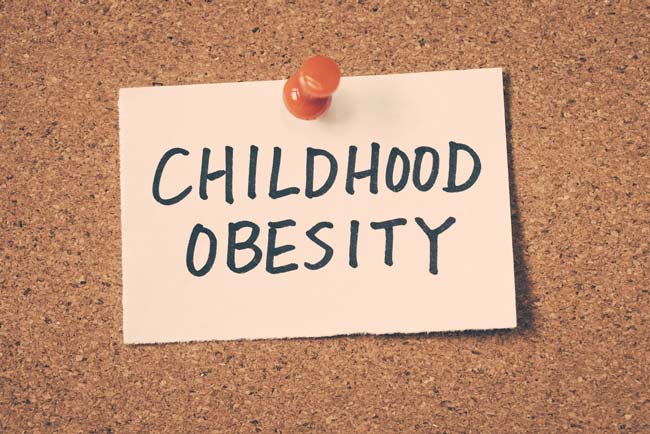Did you know that nearly one in five kids aged 6 to 19 is considered obese? The numbers are staggering — and they’ve tripled since the 1970s.
The official definition of obesity is “having excess body fat.” Medical providers use the body mass index (BMI) tool to determine whether a person is obese. In general, those with a BMI higher than 30 are considered obese.
With children, though, BMI works a little differently. The Centers for Disease Control and Prevention defines childhood obesity as a BMI at or above the 95th percentile for children of the same age and gender.
Childhood obesity is a significant problem facing the United States. But what can be done?
Let’s take a look at how we can combat childhood obesity — as a country and as parents.
Examining the cause of childhood obesity
The two most obvious factors in causing obesity are poor eating habits and a lack of physical activity. But there are other factors in play, as well.
Other less obvious factors may include:
- Genetics
- How a person’s body metabolizes food
- Quantity and quality of sleep
- Environment, including the person’s community and neighborhood
- Mother’s excessive weight gain during pregnancy
- Mother’s developing gestational diabetes during pregnancy
You can’t change a family history of being overweight or obese. However, you can take steps to mitigate that risk factor by encouraging children to be active and eat well.
Why childhood obesity is a serious issue
Obesity during childhood can have serious, negative impacts both during childhood and later in life. For one, a child who is obese is more likely to remain obese as an adult.
Children with obesity are also at a higher risk of developing chronic health conditions, including heart disease, type 2 diabetes, problems with the bones and joints, and sleep disorders, among other conditions.
In adulthood, obesity also makes a person more likely to develop metabolic syndrome and many types of cancer.
Effects of childhood obesity extend beyond the physical. Those who are obese are sadly more likely to be bullied than children at a normal weight and are also more likely to be depressed and have a low self-esteem.
So what can be done to lower the rate of childhood obesity and lower the risk of these associated health problems? It starts at the family level.
Promoting a healthy lifestyle to avoid childhood obesity
As we mentioned above, some factors for childhood obesity can’t really be changed. But the big ones — sleep, diet and exercise — can.
That’s where the lifestyle choices we encourage in our families and our children make a significant difference.
You can take steps to encourage healthy lifestyle habits in your kids. And once they develop those habits, they’re more likely to maintain them as adults.
Encourage/teach your kids to:
- Be active. Did you know that children need 60 minutes of physical activity each day? That doesn’t mean a formal exercise routine — it simply means they need to be active and play for at least an hour a day. Encourage your children to play outdoors instead of spending time in front of a screen, and be sure to model that behavior, too, by getting in exercise of your own.
- Eat breakfast. This is a healthy habit for us all. To be our most productive and effective, we need to fuel our bodies with a good balance of protein, carbs and a little healthy fat in the mornings.
- Fill your plates with fruits and veggies. Children should get at least 1 ½ cups of fruit and 2 cups of veggies each day — and the more, the merrier! We often reach for processed foods like chips when we’re hungry because they’re readily available. Change up that habit by putting fruits and veggies on the countertop to grab when hunger strikes!
- Don’t watch TV while eating. Have you ever noticed how easy it is to mindlessly eat large quantities of food while distracted by a TV show or movie? Turn off the TV during meals, so that your entire family will be more mindful about the food choices you’re making and how much you’re eating.
- Drink plenty of water. Don’t drink your calories! Hydrate the body with water and small quantities of other no-calorie beverages. You especially want to limit the number of sugar-sweetened drinks.
- Get enough quality sleep. Do you know how much sleep your kids should be getting based on their age? Sleep is vitally important for us all, but it’s especially important as kids grow and develop. And not getting enough sleep or not getting enough quality sleep can actually lead to weight gain.
Helping a child make healthy choices can build healthy habits that yield a lifetime of benefits.
Not sure if your child is at a healthy weight for his or her age? Talk with your pediatrician at your next appointment. Need a doctor? Find one here.







